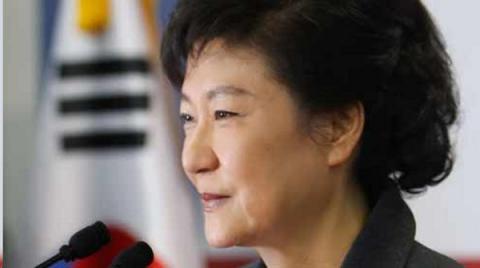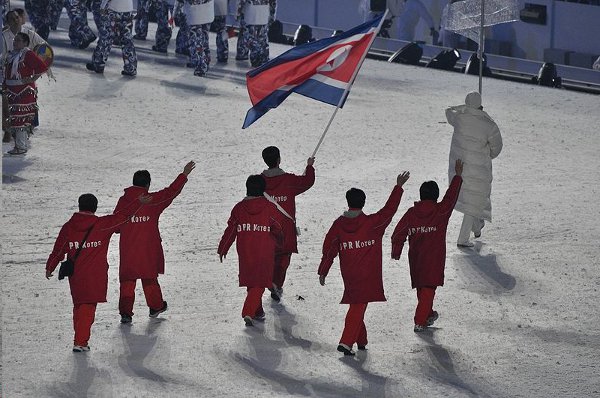New S. Korean President’s First Priority Is Addressing N. Korean Nuclear Threat

From New America Media and Polinews:
Ed. Note: The following is an excerpt from an editorial that ran on the South Korean Internet news site Polinews on the challenges facing South Korean President elect Park Geun-hye. Park, who assumes office next month, is facing a host of thorny issues, including a still recovering economy, a widening wealth gap, challenges to the education system, and caring for the country’s aging population. None of these issues, the editorial argues, will be as critical to Park’s presidency as will her ability to manage the growing crisis in North Korea, which looks to be in the process of preparing for a third nuclear test.
The administration of President-elect Park Geun-hye is facing an immediate crisis in North Korea’s nuclear program. If she does not handle the situation carefully, South Korea will face a serious threat to its security. As soon as Park takes office there are a slew of issues that she must tackle, including the economy, social welfare, and education. But in many ways her presidency will be judged on how she handles her bellicose neighbor.
If the new Park government manages to smooth relations with North Korea, it will advance peace on the peninsula and forward the cause of inter-Korean unification. It will also help expand economic cooperation, through which new markets will open. South Korea, which some say is nearing the limits of its own domestic growth, will greatly benefit from this.
With that said, Park’s policy toward North Korea can go one of three ways: crisis, mutual benefit, or preservation of the status quo.
Actions inside North Korea have been very troubling of late, particularly since the United Nations agreed to a further round of sanctions on the country earlier this month (following the North’s rocket launch in December, in violation of U.N. rules). On Jan. 26, North Korean leader Kim Jong-un ordered his military to assume a war posture, vowing to retaliate against the sanctions. Observers say the country appears to be preparing for a third nuclear test. The main party newspaper, Rodong Sinnmun, declared Saturday the sanctions left North Korea “with no other options.”
Unlike past tests, in which Pyongyang sought to use its nuclear threat as leverage in negotiations, this time appears different, and more serious. Of greatest concern is what some see as an untested leader and the unstable power structure that has yet to converge around him, following the death of his father, Kim Jong il, in 2011. (The younger Kim took power in an unprecedented third generation transfer following his father’s death.) With his foreign policy yet to be made public and his young age (he is 29), some worry that the younger Kim may be more of a risk taker than either his father or grandfather, state founder Kim Il sung.

That he would risk further isolating his already impoverished country with another nuclear test is proof of this.
Much depends on the reaction of the United States. When North Korea conducted its first test in 1994, the response from Washington was immediate and led to talk of open conflict and war. Now China is playing an important role in mediating the issue, but it remains unclear what direction the “crisis” will move.
When North Korea conducted its first nuclear test, both Kim Il-sung and Kim Jong-il enjoyed strong party and public support. In comparison, Kim Jong-un’s leadership remains fragile at best. Under such a situation, North Korea’s political fault lines remain unpredictable and that Park’s ability to manage the crisis will be immediately tested.
Park’s domestic support base can be an obstacle in this. The incoming administration inherited this crisis thanks in large part to the conservative policies pursued by Park’s predecessor, outgoing president Lee Myung bak, whose hard line approach to Pyongyang led to a deterioration of inter-Korean relations. Many of Park’s supporters are in the same camp as those who elected Lee five years ago.
If North Korea goes ahead with its test, conservative calls for a strong response will grow in the South, and that could have an impact on Park’s still evolving North Korea policy, prompting her to be less risk averse. A strong response from Park to further isolate the North will threaten security on the peninsula and across the region. With national security a priority, any moves on the part of Pyongyang to antagonize the South could draw a series of escalating responses from Park, who will want to present a tough stance for her base. This is a concern.
If President-elect Park wants to minimize the risk around the “nuclear crisis,” her “management” of relations with Pyongyang will be critical. This will start with conversations between the two Koreas, and support from neighboring countries. Such steps will create an atmosphere conducive to dialogue and a resolution of tensions.
A key pledge during her campaign promised to build what she termed the “Korean Peninsula Trust Process.” That pledge now runs the risk of a succumbing to political realties. Park cannot allow South Korean policy on the North to be dictated by the interests of Washington or Beijing, or allow leaders in Japan an excuse to rearm. Park’s management skills will soon be put to the test.
Photos: New America Media; Matt May (Wikipedia Commons).






























































































































































































































































































































